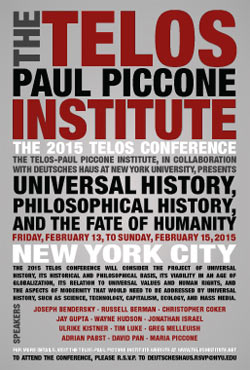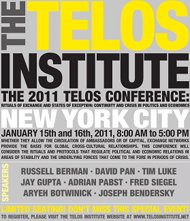 Transnational history has emerged in the wake of the sprouting of international history, global history, and post-colonial history as historical subject fields in the 1990s academic marketplace. Chris Bayly’s 2004 book Birth of the Modern World, 1780–1914 is a landmark in the emergence of transnational history as an academic subject stressing the connectedness of history, as a narrative of accelerating cross-border métissage and intercontextuality. As another historian in this school, Sven Beckert, reminds us, transnational history is more than an academic brand; it is a fundamentally different analytical space and a social movement in itself. On the cover of Bayly’s book is a portrait by Anne-Louis Giradet, student of Jacques Louis David, who would be exiled in Brussels after 1815 with Emmanuel Sièyes as revolutionaries turned supporters of Bonaparte. Ironically, it hangs in in the Trianon at Versailles. It is a portrait of Citoyen Jean-Baptiste Belley of Saint Dominique, native of the slave port of Gorée in Senegal, comrade-in-arms of Toussaint L’Ouverture and the first Black Deputy to both the National Convention and the National Assembly. Belley’s silk cummerbund and the decoration of his hat assert the universalizing intention of the French Revolution, His light breaches express the sexual power of Rousseau’s noble savage, and refer to Bayly’s emphasis on bodily regimes. Belley leans against a bust on a marble plinth: the bust of the Encyclopèdiste Raynal, the most radical critic of slavery and the colonial policy of the Ancien Régime.
Transnational history has emerged in the wake of the sprouting of international history, global history, and post-colonial history as historical subject fields in the 1990s academic marketplace. Chris Bayly’s 2004 book Birth of the Modern World, 1780–1914 is a landmark in the emergence of transnational history as an academic subject stressing the connectedness of history, as a narrative of accelerating cross-border métissage and intercontextuality. As another historian in this school, Sven Beckert, reminds us, transnational history is more than an academic brand; it is a fundamentally different analytical space and a social movement in itself. On the cover of Bayly’s book is a portrait by Anne-Louis Giradet, student of Jacques Louis David, who would be exiled in Brussels after 1815 with Emmanuel Sièyes as revolutionaries turned supporters of Bonaparte. Ironically, it hangs in in the Trianon at Versailles. It is a portrait of Citoyen Jean-Baptiste Belley of Saint Dominique, native of the slave port of Gorée in Senegal, comrade-in-arms of Toussaint L’Ouverture and the first Black Deputy to both the National Convention and the National Assembly. Belley’s silk cummerbund and the decoration of his hat assert the universalizing intention of the French Revolution, His light breaches express the sexual power of Rousseau’s noble savage, and refer to Bayly’s emphasis on bodily regimes. Belley leans against a bust on a marble plinth: the bust of the Encyclopèdiste Raynal, the most radical critic of slavery and the colonial policy of the Ancien Régime.
|
The following paper was presented at the Eighth Annual Telos Conference, held on February 15–16, 2014, in New York City. It develops ideas that the author previously explored in “The Changing Forms of Contracting in a Society of Transnational Networks,” a paper delivered at the 2011 Telos Conference. Can Critical Theory—rooted in the observation and dialectical understanding of the tensions and contradictions within the totality of interactions—bind itself like Odysseus in studying neoliberal social forms, so as to learn from them? And in so doing, discern in a Durkheimian manner emergent practices of self-binding and mutual bonds? Without foundering on neoliberalism’s reefs and rocks of sovereignty? Without falling prey to the collective addictions of the self-destructive financialized manipulations some neoliberal thinking spawns? An earlier version of this paper was presented at the 2011 Telos Conference, “Rituals of Exchange and States of Exception: Continuity and Crisis in Politics and Economics.” |
||||
|
Telos Press Publishing · PO Box 811 · Candor, NY 13743 · Phone: 212-228-6479 Privacy Policy · Data Protection Copyright © 2024 Telos Press Publishing · All Rights Reserved |
||||
 Whereas the new millennium brought with it a focus on “collision rules” within global governance and corporate governance, the economic crises emerging out of 2008 turned the focus to the failure of regulatory practices. The current crises challenge not only a neoliberal hegemony but the New Deal/Great Society coordinating state model as well; as we have moved not only beyond a society of individuals to a society of organizations. We live now in a society of transnational network contracting and corporate governance practices. This society of networks can no longer be clearly associated with traditional conceptions of state, market or civil society/public versus private. Amidst this crisis, emerging legal challenges can no longer be coped with by institutions and ritualized routines of laissez-faire liberalism, social liberalism, or neoliberalism. This paper redirects focus to an increasingly disembedded style of contracting amidst multi-polar and multi-rational regimes of conflict regulation/dispute resolution. In doing so this paper starts from the prism of contracting practices and rituals: arguing that an understanding of how the discourse of “governing contracts” is continually and irreversibly implicated in the evolution of a network of heterarchical private relationships and public institutions.
Whereas the new millennium brought with it a focus on “collision rules” within global governance and corporate governance, the economic crises emerging out of 2008 turned the focus to the failure of regulatory practices. The current crises challenge not only a neoliberal hegemony but the New Deal/Great Society coordinating state model as well; as we have moved not only beyond a society of individuals to a society of organizations. We live now in a society of transnational network contracting and corporate governance practices. This society of networks can no longer be clearly associated with traditional conceptions of state, market or civil society/public versus private. Amidst this crisis, emerging legal challenges can no longer be coped with by institutions and ritualized routines of laissez-faire liberalism, social liberalism, or neoliberalism. This paper redirects focus to an increasingly disembedded style of contracting amidst multi-polar and multi-rational regimes of conflict regulation/dispute resolution. In doing so this paper starts from the prism of contracting practices and rituals: arguing that an understanding of how the discourse of “governing contracts” is continually and irreversibly implicated in the evolution of a network of heterarchical private relationships and public institutions. 






